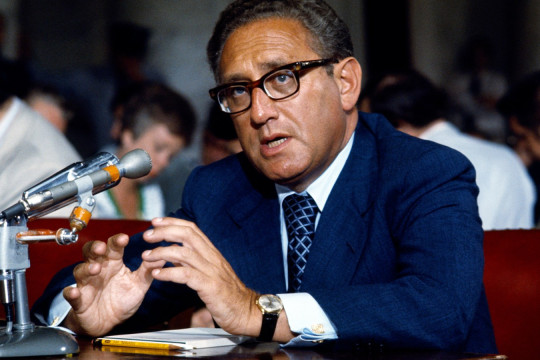2023, believe it or not, was the number of articles, blog posts, videos, and visualizations republished on Bunk last year. As usual, these pieces traversed a tremendous range of topics, from politics to fashion to public health to religion. What they had in common is that they all contended, in one way or another, with what the American past might mean to us today.
Those of you familiar with this website know that we dedicate a lot of energy to tagging each of the pieces we republish for their themes, locations, and timeframes, allowing them to be connected to the nearly 12 thousand other stories currently in our archive. Last year, the most commonly applied theme tag was, for the first time, inclusion/exclusion, followed by slavery, labor, family, and interestingly enough, reputation. As usual, the most frequently mentioned person was Donald Trump. The year’s pool of content was drawn from some 360 different publications.
As can be deduced from the time elapsed since other purveyors of online content shared their Best of 2023 picks, it has been no easy task to come up with a shortlist of our absolute favorites. But that didn’t keep us from trying, and it is with great pleasure that we present our selections below. It is a team effort — Kathryn Ostrofsky, Bunk's Archive Coordinator, contributed 20 of her favorites, and as we thought befit the occasion, the site's editor Tony Field rounded out the list with 23 of his. We set aside the 300 book reviews we republished last year (stay tuned for a compilation of highlights there), and limited ourselves to pieces that were 6000 words or less. Each of us then divided our lists into rough categories that, taken together, begin to reflect the tremendous diversity of both form and content that characterizes the contemporary landscape of public writing about American history.
We’re grateful to the authors not only of these 20+23 pieces, but also to those responsible for the thousands of other great examples of history writing that we read this year. Each of them, in one way or another, has helped to unmoor, and then rearrange, our senses of our selves and communities in time and space. We hope you learn as much from them as we have.
Tony's Picks
ON ORIGINS
There’s a certain kind of history writing that sets out to historicize something whose provenance I’d never really considered, but that I find myself absolutely needing to know about after reading the first paragraph. We came across a lot of great examples this year, but these four were standouts.
ON MUSIC, FILM & LITERATURE
If you were looking for a good way into the Bunk archive, you could do worse than to start with our collection of writing about country music. In what is becoming something of an annual trend, this year’s best-of list includes a terrific new addition to that collection. It also includes my favorite piece of writing about the year’s most written-about movie, a reflection on Cormac McCarthy through the lens of Melville, and a powerful visualization of gender imbalance in the music industry, newly relevant in the light of this week’s Grammy Awards.
ON PEOPLE
You may not be familiar with the first two of these fascinating individuals. The third you most certainly are. Still, I think it’s safe to say that you’ve never seen an obituary quite like this one.
ON PLACES
A building, a city, and a river valley. In different ways, the authors of each of these three pieces anchor themselves in place and allow the currents of time to wash over them. Their essays end up revealing so much not only about the locations themselves, but also about the ways that we do — and don’t — think historically about the places we live.
ON THE STORIES WE TELL ABOUT THE PAST
“This is the reason I study history,” writes Hugh Ryan in his history of queer identity, included below. “Not out of some fetishization of the past, but because studying the past frees me from the tyranny of the present.” The same could be said to describe the approach taken in the other piece, which backdates the commonly told story of Asians in the Americas by at least a couple of centuries.
ON NEW INSIGHTS FROM OLD DOCUMENTS
A lot of the writing that winds up on our annual favorites lists is characterized by lengthy twists and turns that take readers on unexpected journeys through history. But Bunk is also full of shorter pieces that draw on archival records to upend standard narratives about the past. Here are two noteworthy examples.
ON WRITERS’ OWN LIVES
How cool would it be to design an entire history course around the “First Person” essays in Bunk? Very, if I do say so myself. These are three that I would definitely recommend for that syllabus. (And there’s a whole lot more where they came from.)
HISTORIES OF NOW
One of these pieces reflects on the limitations of people’s awareness of historical continuities, while the other describes a certain hyperawareness of the past. But both cut to the core of Bunk’s mission, which is to make visible some of the ways in which Americans’ lives are connected across time and space. As with much of the writing that we republish in this vein, the experience of having those connections made clear can be clarifying, but frustrating as well.
Kathryn's Picks
WRITING AT INTERSECTIONS
Many of the pieces that caught my interest this year combined themes that are usually addressed separately. Whether it's a link between physical fitness and democracy, or between venture capitalism and maritime explorers, these pieces help us see familiar ideas in surprising new ways.
WRITING ABOUT CONNECTION
Histories of friendship, community, and belonging.
WRITING THAT INVITES EMPATHY
Stories of humanity that connect us to people who lived in the past, and inspire us to understand and care for those living and dying today.
ON THE STRUCTURES THAT ARE KILLING US
It's difficult to see the structures of society that affect our lives while we're in the middle of them, and even harder to see a way forward. But the histories of cities and mental health, of consumer culture and climate change, reveal how we have normalized things that cause us harm.
THE HISTORY WE MAKE EVERY DAY
We are constantly questioning and reshaping our understandings of the past by contextualizing personal memories and preserving the ideas and objects that have meaning to us.










































